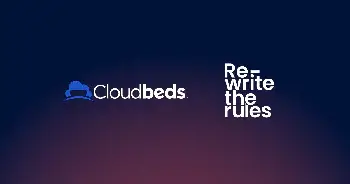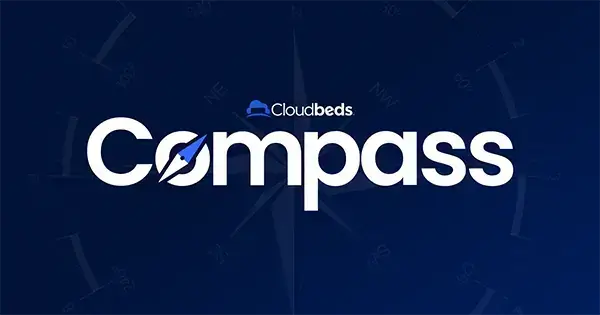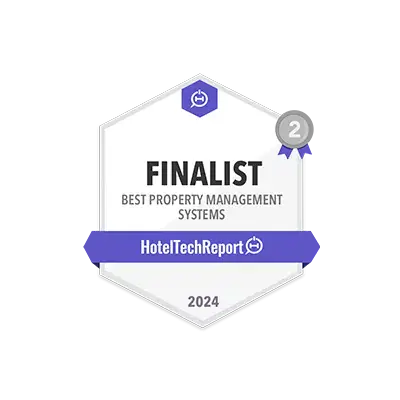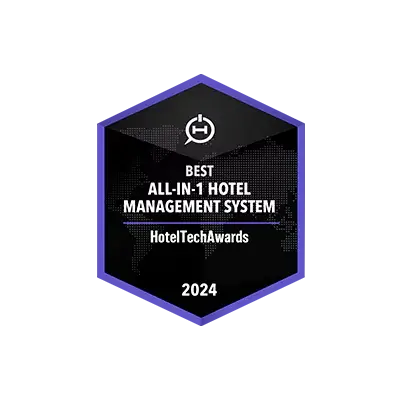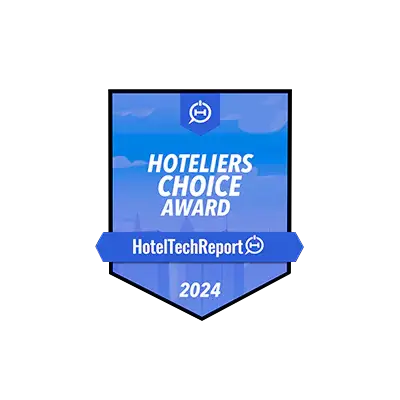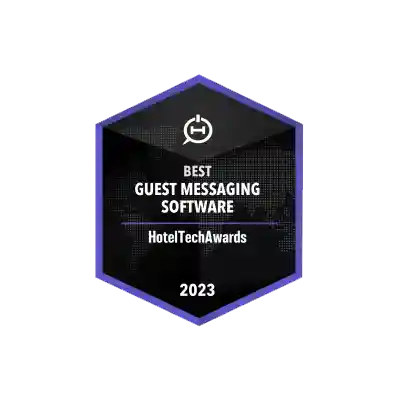9 considerations when choosing
an OTA channel manager
A channel manager is an essential part of a property’s online distribution strategy as it’s used for managing multiple OTAs so you can keep track of your inventory in real time while avoiding unintentional overbookings. A good channel manager will provide two-way synchronization with your property management system and booking engine to keep your rates and availability in sync.
What is a channel manager?
A channel management system is software that allows hoteliers and hosts to manage their distribution channels from a single platform. It helps streamline online bookings so that you can connect to more channels and increase occupancy without double bookings. Without a channel manager, properties must log in to the extranet of each channel and manually make changes, which can take hours, especially for properties listed on multiple booking channels.
Channel managers allow you to update multiple online travel agencies like Booking.com, Expedia, and Airbnb automatically every time a booking, cancellation, rate plan, room type change, or stay restriction occurs. They help significantly reduce overbookings that often come with manually updating OTA connections and help save a lot of time and human error.
How does an OTA channel manager work?
A channel manager automates a property’s distribution strategy by dynamically connecting inventory to multiple booking sites via an API connection. While you technically can manage inventory manually, keeping rates and availability across all online marketing channels takes a lot of time and effort and often results in overbookings and other errors.
Instead, a channel manager can be used to automate the distribution process and automatically update room rates, availability, and more. It ensures that your data is always in-sync and helps you to easily make changes across platforms to increase competitiveness and reduce overbookings.
Why manage OTAs with a channel manager?
Having a channel manager is pivotal in remaining competitive in the hospitality industry. While large hotel chains mainly used channel managers in the past, technology has evolved so that independent properties can manage their online distribution at an affordable price.
Here are a few reasons why you should be managing your online channels with a channel manager:
1. Connect to more channels. Manually managing channels takes a lot of time. By switching to an automated channel manager, you can expand your distribution strategy with more sales channels to attract potential guests and increase both direct and indirect reservations. You can round out your distribution strategy to drive online sales using OTAs, metasearch sites, and GDS.
2. Reduce or eliminate accidental overbookings. Overbookings are detrimental to a property. They significantly impact the guest experience and result in negative reviews. A hotel channel manager makes real-time updates in availability so travelers cannot make a new booking if someone else has already booked a room.
3. Minimize reservation errors. Transferring reservation information from emails or extranets to a spreadsheet is bound to result in errors. A hotel booking system automatically transfer information from OTAs to your PMS, including names, dates, occupancy, and check-in times.
What is the difference between a channel manager and a PMS?
A property management system (PMS) is a property’s control system and data hub that includes broad functionality such as reservation management, guest communication, payments, rates, availability, occupancy, and more.
A channel manager distributes your inventory across online channels and your website to ensure accurate and up-to-date information.
Ideally, you can manage your property with a single software solution that includes both channel management and PMS functionality. With a single system, you will have centralized data, making it much easier to manage your inventory, rates, and reservations.
What is the difference between a channel manager and a booking engine?
A booking engine is a reservation processing system that captures direct bookings via a property’s website, social media, and other marketing channels. Properties can embed a booking engine into their hotel website to allow guests to book online at any time and collect credit card payments immediately.
Your channel manager should integrate with your booking engine to ensure your website and other connected channels have accurate pricing and availability.
9 considerations when choosing a channel manager
A channel manager serves as the connective tissue between a property and its online distribution channels. From OTAs to metasearch engines, GDSs, and online marketplaces, a channel manager ensures that any changes in availability, pricing, or restrictions are instantly updated.
At Passport 2023, Cloudbeds’ Ivo Salmre, VP of Product, and Jeremee Peters, Group Product Manager, discussed how a channel manager can simplify processes for hoteliers and the three areas they’re focused on this year to improve channel management for lodging businesses.
Here are a few considerations when choosing a channel manager:
1. Connect to the channels you rely on
Make sure your channel manager connects to the channels you already use and depend on.
2. Analyze what other channels they connect to
Does it connect to the largest online travel agents like Airbnb, Expedia, Hotels.com, and TripAdvisor? What about local connections in your area? For example, if you’re in South America, Despegar is an important connection.
3. Integrated system
Choose a channel manager that integrates with your property management system and booking engine so your availability and rates are updated in real time, reducing the possibility of overbookings or losing the opportunity to sell a recently canceled room.
4. Two-way synchronization
Your channel manager should have near-instantaneous two-way synchronization to reduce the risk of overbookings. Depending on the provider, connection speed can range from seconds (like Cloudbeds) to minutes.
5. Comprehensive features
Prioritize a channel manager that’s user-friendly and has comprehensive features, including multi-currency support, reporting, multiple users, and user roles.
6. Onboarding and support
Find out what type of onboarding and support the channel manager provider offers. You’ll want to find a vendor that cares about your success and has 24/7 support in case you need help.
7. Security and compliance
Ask the channel manager software provider about their data safety and security compliance. This is important since the system will be processing your rates and guest information, so you’ll want to ensure the data is secure and compliant with PCI DSS, SCA, GDPR, and guest data compliance.
8. Zero commissions or fees
Look for a channel manager that lets you connect to unlimited channels without a per-channel fee and doesn’t add additional commission and transaction fees on top of what your OTAs already charge.
9. Review scores
Check online reviews on software review sites and seek a channel manager that’s recognized by the industry. Large OTAs have premier/preferred partnership programs to recognize software partners with high-quality technical connections.

